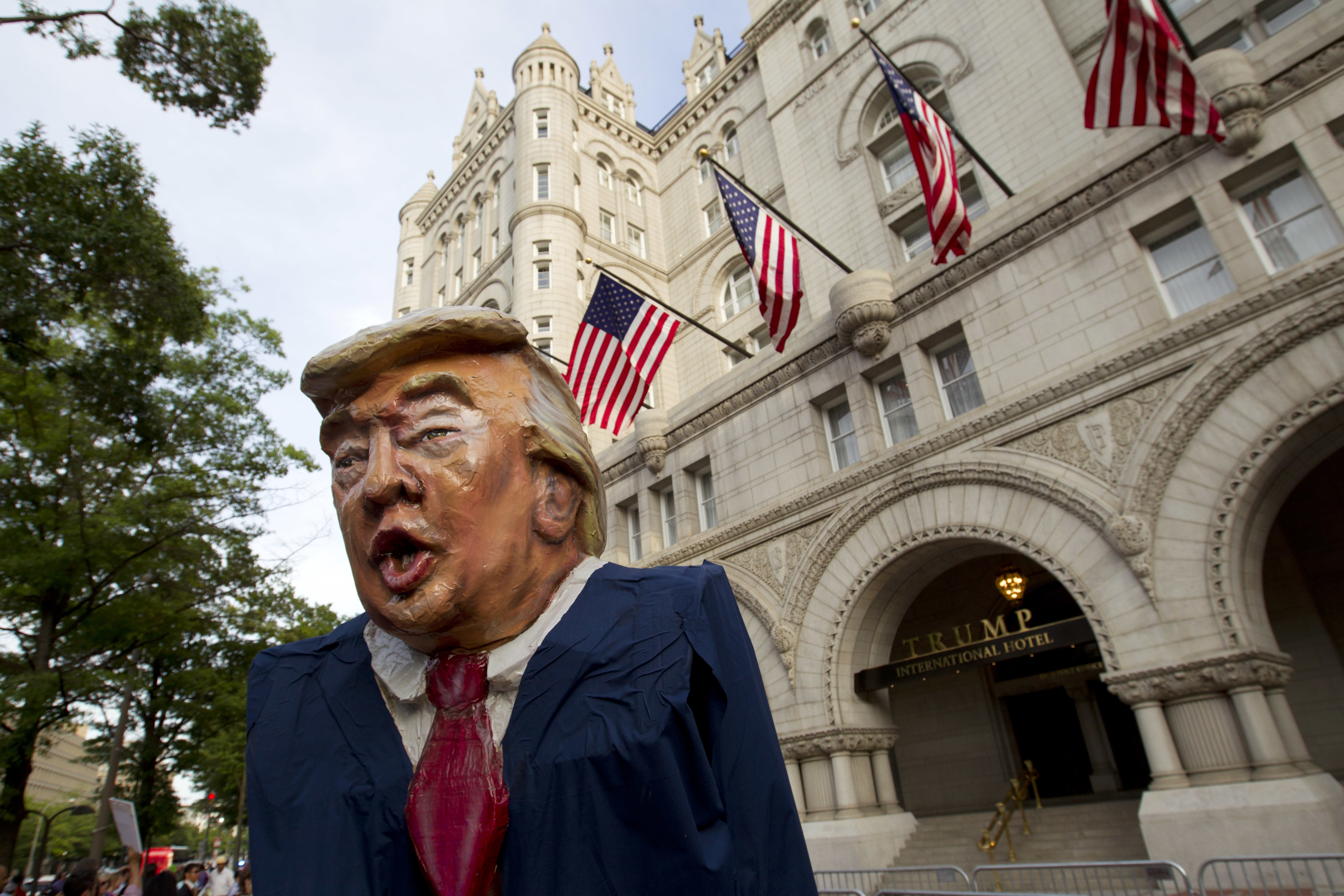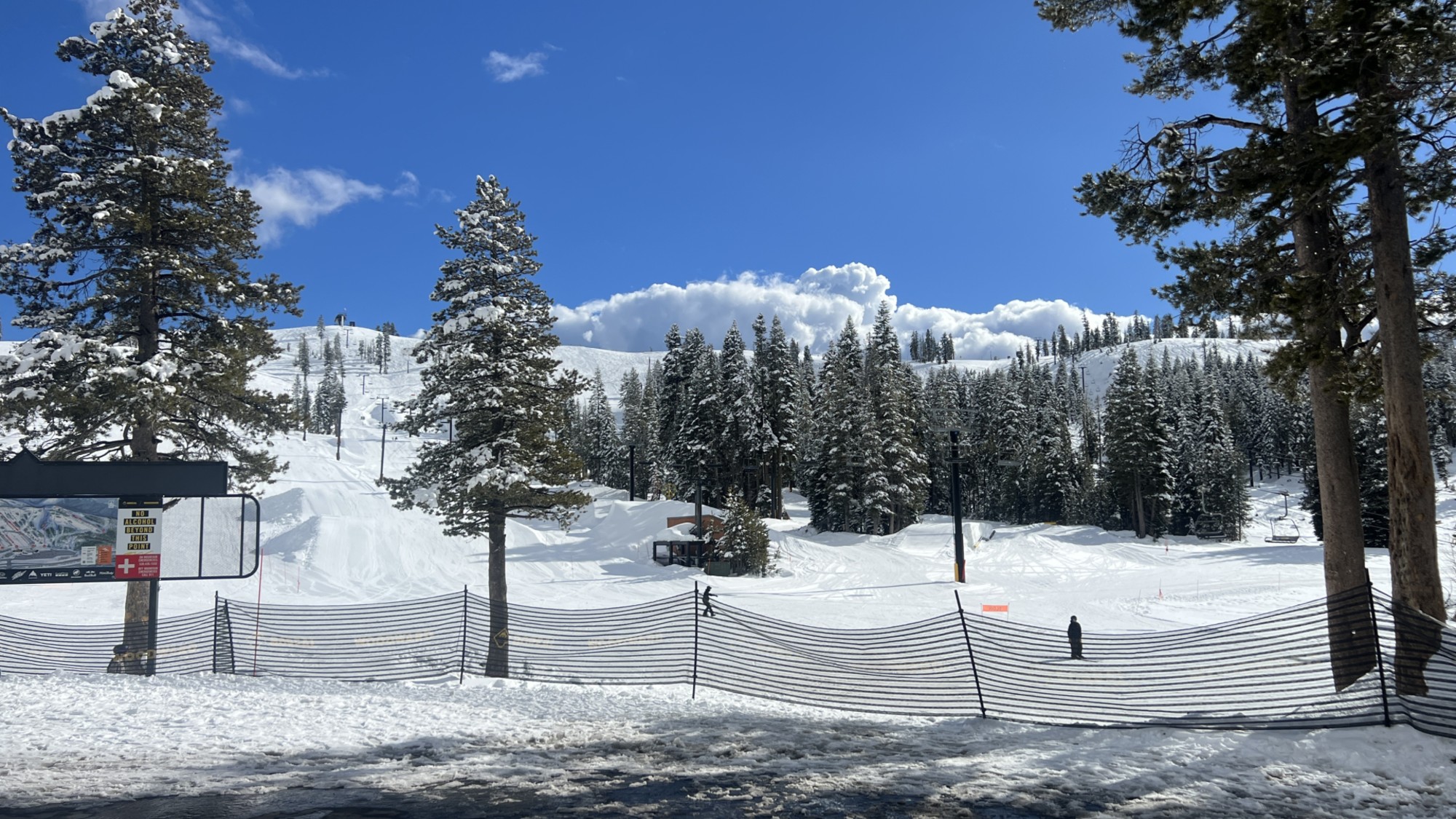The resistance that cried wolf
The president's critics are far too quick to declare his every utterance and action unprecendented. They should start actually examining the precedents first.


A free daily email with the biggest news stories of the day – and the best features from TheWeek.com
You are now subscribed
Your newsletter sign-up was successful
It's impossible in some quarters to discuss Donald Trump Jr.'s meeting with a shady Russian lawyer without being quizzed about similar bad things politicians from the opposing party have done.
What about Ted Kennedy's secret messages to the Soviets while Ronald Reagan was running for re-election? What about the Ukrainian government trying to help Hillary Clinton? And on and on it goes.
This bit of rhetorical judo has become so common in our politics that it even has a name: "whataboutism." Naturally, its origins have been traced back to the Russians, if not even further back. The Economist's Edward Lucas described it as an attempt to "match every Soviet crime with a real or imagined Western one."
The Week
Escape your echo chamber. Get the facts behind the news, plus analysis from multiple perspectives.

Sign up for The Week's Free Newsletters
From our morning news briefing to a weekly Good News Newsletter, get the best of The Week delivered directly to your inbox.
From our morning news briefing to a weekly Good News Newsletter, get the best of The Week delivered directly to your inbox.
More recently, the tactic has been deployed by diehard supporters of President Trump, as well as by his more removed "anti-anti-Trumpist" backers.
And you know what? Trump's supporters are not wrong to urge us all to truly examine historical precedents. Because all too often, Trump's fiercest critics declare his every utterance and action unprecedented without bothering to thoughtfully consider the precedents.
Now, when "whataboutism" is used to defend the indefensible, it is obviously wrong. But not every historical comparison can be dismissed as simple "whataboutism." And there are good reasons why "What about ... " questions have so frequently been raised under this president. The case against Trump is not simply that he does things that are wrong or bad, but that he is bad in ways that are unprecedented and represent a sharp break from important political norms.
If we are going to chastise Trump for norm violations, shouldn't we first establish how normal or abnormal his actions in a given area really are? If we are going to say he is guilty of doing the unprecedented, shouldn't we look to see if there are in fact any precedents?
A free daily email with the biggest news stories of the day – and the best features from TheWeek.com
These "what about" questions also impose some accountability on Trump critics. When asked in good faith, they can be used to determine consistency and avoid double standards.
None of this means that if President Trump were to suspend habeas corpus, we should respond by saying, "Calm down! Even Abraham Lincoln suspended habeas corpus during the Civil War!" It does, however, mean that even people who believe Trump represents something fundamentally different from past presidents have an obligation to try to keep him in historical perspective.
The tendency to treat everything Trump does as an emergency, without distinction, will make true emergencies more difficult to recognize. And if the press gets it wrong, hyping something that isn't especially unusual, it makes it easier for Trump to dismiss future criticisms or unflattering reports as "fake news."
Take, for example, the dearth of on-camera press briefings. There is a legitimate argument to be made that this stifles transparency because it reduces the consequences for refusing to answer questions or giving incoherent responses — the viewing public doesn't get to see the administration's representatives squirm. (It's also a missed opportunity for Trump to use the bully pulpit, but that's another story.)
What it doesn't do is end the free press, which existed before on-camera briefings were even technologically possible, or alter the character of the republic in some fundamental way. CNN's Jim Acosta is being hyperbolic when he says video of Sarah Huckabee Sanders has been "banned by the USA" and asks if it feels like America when the media is "openly" trashed or other, more conservative outlets get to ask questions instead of his.
It's enough to make a person who would otherwise like to stand in journalistic solidarity with Acosta on these questions ask, "What about Spiro Agnew?" (Indeed, what about White House press secretaries under former Presidents Bill Clinton and George W. Bush suggesting there be no live coverage of these briefings at all?)
The criticism some of us have of those who are obsessively anti-Trump isn't that they are necessarily wrong about the president. I personally share many of their harsh assessments, especially of his fixation on petty feuds at a time of international peril, not to mention his overall temperament.
Yet they can also be almost naive in their evaluations of politicians and government pre-Trump, blind to how the governing class' failures and character flaws made this presidency possible in the first place. Indeed, they often risk becoming the resistance that cried wolf.
Nothing Trump does wrong can be excused by pointing to the Clintons or others. We don't want bad precedents to be set by the president or followed by future ones. What we should want is for all politicians to abide by the same set of rules — whether we like them or not.
W. James Antle III is the politics editor of the Washington Examiner, the former editor of The American Conservative, and author of Devouring Freedom: Can Big Government Ever Be Stopped?.
-
 6 fantastic homes with fun rooms for kids
6 fantastic homes with fun rooms for kidsFeature Featuring an organic modern house in Austin and historic Chicago abode
-
 Democrats seek calm and counterprogramming ahead of SOTU
Democrats seek calm and counterprogramming ahead of SOTUIN THE SPOTLIGHT How does the party out of power plan to mark the president’s first State of the Union speech of his second term? It’s still figuring that out.
-
 Climate change is creating more dangerous avalanches
Climate change is creating more dangerous avalanchesThe Explainer Several major ones have recently occurred
-
 The billionaires’ wealth tax: a catastrophe for California?
The billionaires’ wealth tax: a catastrophe for California?Talking Point Peter Thiel and Larry Page preparing to change state residency
-
 Bari Weiss’ ‘60 Minutes’ scandal is about more than one report
Bari Weiss’ ‘60 Minutes’ scandal is about more than one reportIN THE SPOTLIGHT By blocking an approved segment on a controversial prison holding US deportees in El Salvador, the editor-in-chief of CBS News has become the main story
-
 Has Zohran Mamdani shown the Democrats how to win again?
Has Zohran Mamdani shown the Democrats how to win again?Today’s Big Question New York City mayoral election touted as victory for left-wing populists but moderate centrist wins elsewhere present more complex path for Democratic Party
-
 Millions turn out for anti-Trump ‘No Kings’ rallies
Millions turn out for anti-Trump ‘No Kings’ ralliesSpeed Read An estimated 7 million people participated, 2 million more than at the first ‘No Kings’ protest in June
-
 Ghislaine Maxwell: angling for a Trump pardon
Ghislaine Maxwell: angling for a Trump pardonTalking Point Convicted sex trafficker's testimony could shed new light on president's links to Jeffrey Epstein
-
 The last words and final moments of 40 presidents
The last words and final moments of 40 presidentsThe Explainer Some are eloquent quotes worthy of the holders of the highest office in the nation, and others... aren't
-
 The JFK files: the truth at last?
The JFK files: the truth at last?In The Spotlight More than 64,000 previously classified documents relating the 1963 assassination of John F. Kennedy have been released by the Trump administration
-
 'Seriously, not literally': how should the world take Donald Trump?
'Seriously, not literally': how should the world take Donald Trump?Today's big question White House rhetoric and reality look likely to become increasingly blurred
